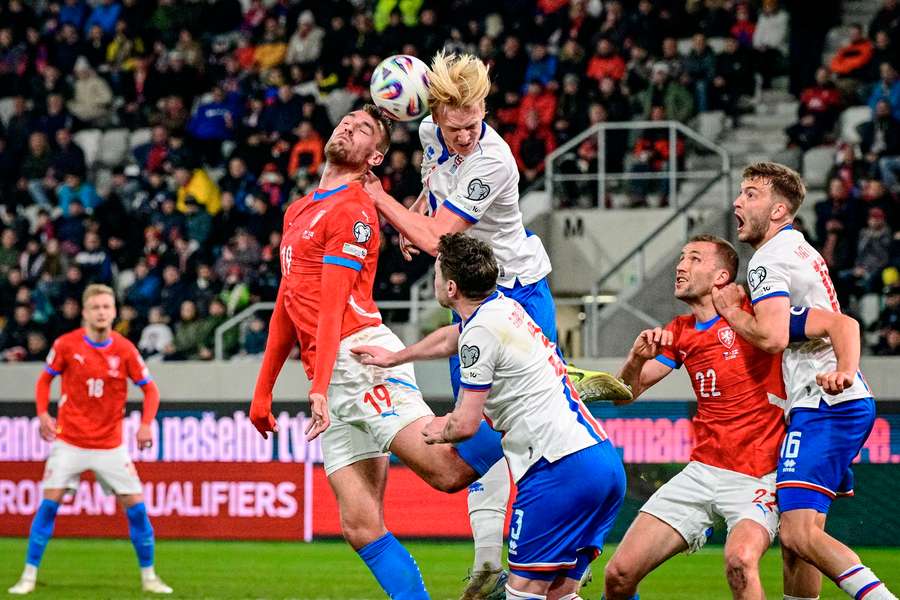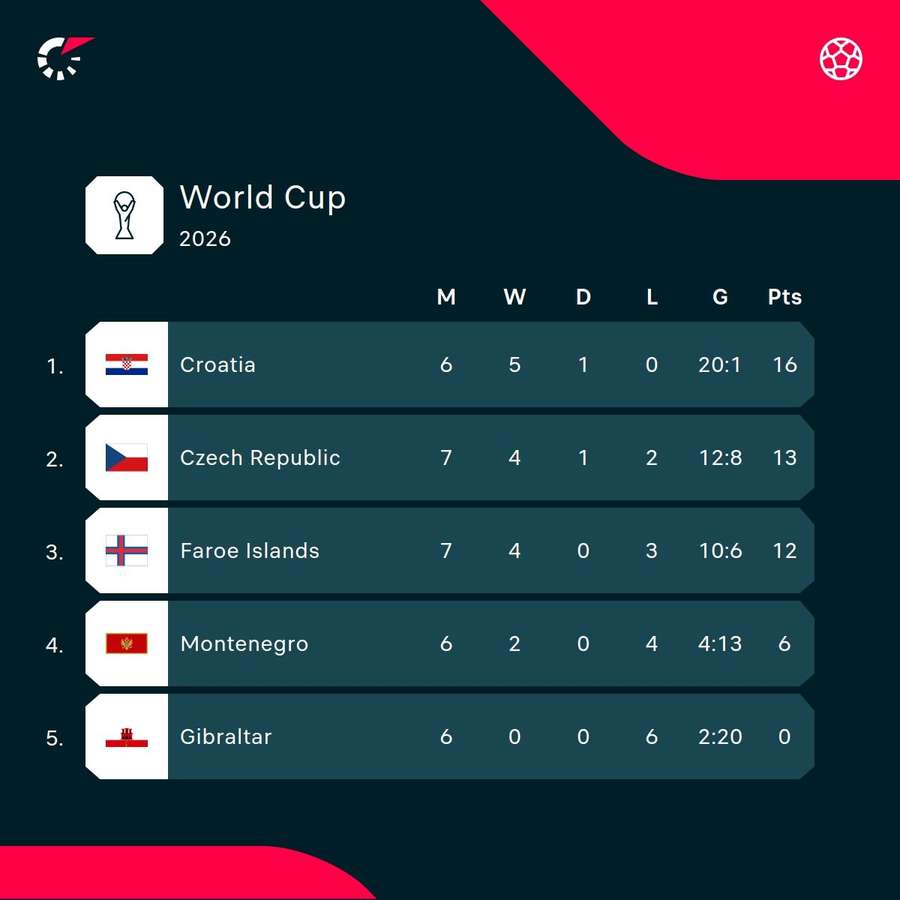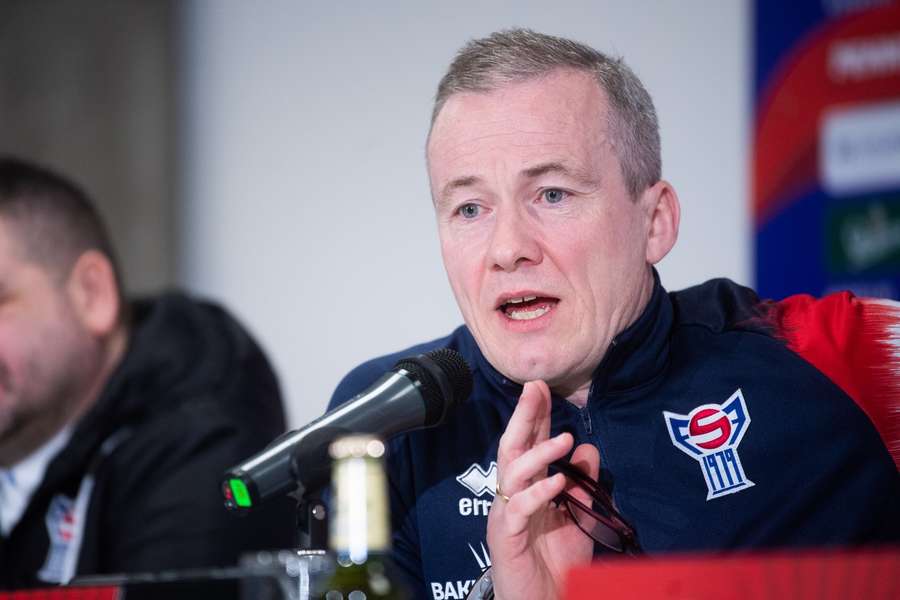While the Faroe Islands have around 53.000 inhabitants, 5,000 of those are registered footballers, which translates to around 10 percent of the entire population, as the sport has become a symbol and expression of Faroese identity.
In 2017, an algorithm ranked the Faroes as the most over-performing national team in the world, as they topped the list of FIFA ranking points per capita. Today, they are ranked 136th in the world, but given the fact that only around half of the current squad are full-time professionals, their results over the last decade still represent an extraordinary accomplishment.
They're now close to their biggest achievement ever, as the Nordic football minnows are third in Group L, just one point behind the Czech Republic in second place with one game left to play in the battle for a playoff spot at the 2026 FIFA World Cup.
Should they manage to qualify, they would be by far the smallest nation to ever qualify for a FIFA World Cup.
In this exclusive interview with Flashscore, coach Eydun Klakstein talks about the background for their accomplishments and the Nordic will to battle against the odds. In addition, Klakstein elaborates on how Faro footballers are almost always underestimated and how they plan to upset Croatia.

What do you see as the biggest factors for the development that Faroese football has undergone in the last 15 years? Is it because of more foreigners in your domestic league, more Faroese players abroad, better facilities with more indoor halls, or other things?
"You can’t point to one area as the explanation for the success – it didn’t happen overnight. It’s not about one team, one coach, or one system. 17 clubs are spread across the Faroe Islands, and the football infrastructure is good, with many artificial turf pitches that are used all year round.
"All pitches are open, and outside training times, anyone can stroll into a stadium – including the national stadium – with a ball under their arm and play football.
"The domestic league has developed significantly in recent years. Many clubs have become more professional with full-time coaches and experts. The players' physiques have improved, and there is constant technical and tactical development."
You come from a small island with small communities and perhaps not so many means, and when you compete in international matches, you usually compete against the odds. Does it affect the Faroese sports mentality, the idea that you want to show the world “that we can do it too”?
"For centuries, Faroese people have fought against the wind, against the forces of nature – wind, rain, sea, storm, and storm – against the odds, against all common sense. Remote out in the North Atlantic, small, harsh, merciless. Yet we have managed to create one of the best societies in the world – safe, rich, and united. Much of what people have accomplished in this country throughout history has happened despite the circumstances.
"The will to survive – and to live – despite difficult circumstances and adversity lies in our genes, in our culture, in our heritage. We have it in our blood, in our brains, in our hearts. And we are capable of so much more than what others think and sometimes also what we think ourselves."

Faroe Islands teams, including the national team, have produced promising results over the last decade, but do you think your opponents still underestimate you?
"We always hope that our opponents underestimate us, but it is not as significant now as it used to be. When we met the Czech Republic in October, I felt genuine respect on a rare occasion. They were well prepared, took fewer risks than usual in the game, made tactical free kicks against our counter-play, and played physically. That is also why the 2-1 victory was one of our best. And now, when we meet Croatia, they cannot say that they have not been warned."
What has been the biggest factor behind the results you have achieved in the World Cup qualifiers?
"From day one, we have worked hard to create a strong team with organised defence, direct attacking play, and hard work.
"In our last ten matches, we have conceded eight goals – that is historically strong for us. We have also developed both the counter-attacking play and the established attacking play, and we are reasonably satisfied that we have scored ten goals in the qualification.
"The players have been fantastic and performed at a high level match after match. This must continue if we want to create good results in the next matches."
From previously being a team that perhaps lived a lot on fighter instinct and physical strength, you seem to be a team that today plays more possession-based football. How would you describe that development?
"Our foundation is tactical organisation, physicals, fight, and unity. Then we can talk about playing football, attacking, creating chances, and scoring goals.
"We are much stronger physically now than 10 years ago, and the players have also become more skilled technically and tactically. In the past year, we have worked a lot on defence and counter-attacking, and the previous coaching team also worked a lot on teamwork and attacking play. This summer and autumn, it has come together into a higher unity, and we have achieved strong performances and great results."
You have what looks like a very difficult away match against Croatia on 14 November. What did you learn from the first match you played against them at home, and how are you looking forward to that match?
"Croatia are among the top ten teams in the world, so it takes a very special performance just to be in the match. Our effort in the home match was good, and we were disappointed not to get points. After that match, we could once again see that if we are well organised, defend solidly, fight with everything we have, and have the courage and will to play and attack, then we can play against the world elite.
"The away match against Croatia will be our toughest in this qualifier, but we are determined to play for our chance. The possibility of success is greatest if we continue with the tactical, mental, and footballing performances we have shown so far."
What will it mean for the Faroe Islands if you manage to qualify for the playoffs?
"We have the opportunity, but a lot needs to be done. We have to beat Croatia, and the Czech Republic must not win against Gibraltar. We will do everything we can to get the big result – we cannot do more. And if it happens, it would be a historic achievement – and even greater than what we have already achieved in this qualification."

